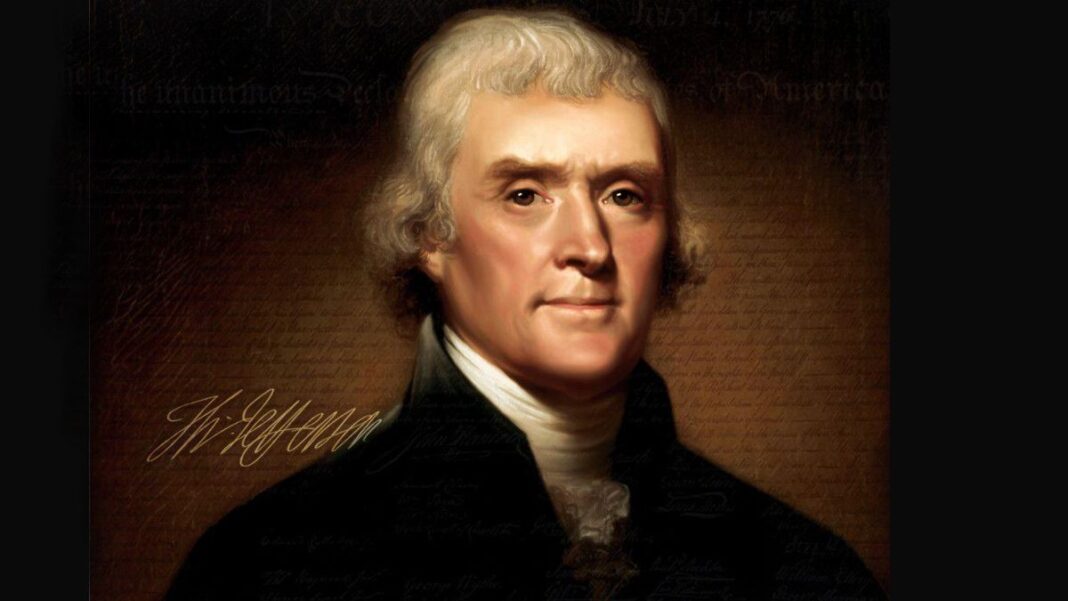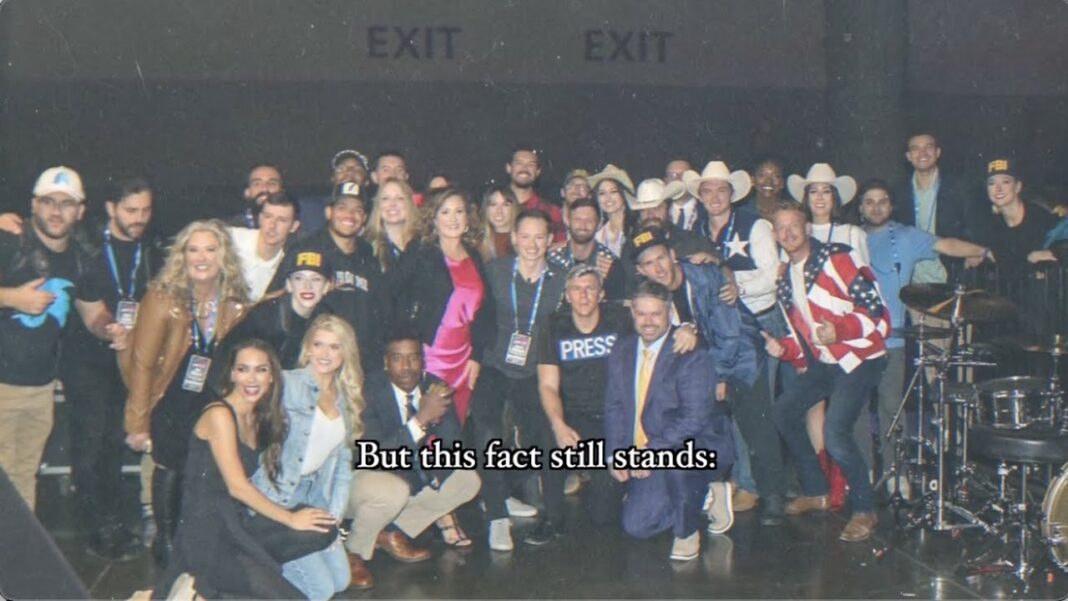The Light and the Glory by Peter Marshall (son of the famous Senate Chaplain of the same name) and David Manuel (author of The Jesus Factor) is a well-known, respected, and trusted history of the founding of America in Christian perspective. But its authors have come to a dangerous conclusion in a mere two-page spread of their book: They have made the statement that Thomas Jefferson was not a Christian. Marshall and Manuel though, are not entirely to blame. This is a number-one mistake historians and students make upon assessing the private life of Jefferson. It is not uncommon for Jefferson to be noted as an atheist.
“I never told my own religion”
Thomas Jefferson, it should be understood, was a quiet man. He kept to himself many of his beliefs and opinions regarding his religion. He felt that this was a private matter, between the individual and his God. As he said, “I have ever thought religion a concern purely between our God and our consciences, for which we were accountable to Him and not to the priests. I never told my own religion.”[i]
So, by remaining silent on these things, he naturally left the matter open to question: people formed their own ideas, and Jefferson simply ignored all attacks, no matter what was said of him. “I should have fancied myself half guilty had I condescended to put pen to paper in refutation of their falsehoods, or drawn to them respect by any notice of myself,” he confided to Martin Van Buren.[ii] Notes Andrew Allison, author of The Real Thomas Jefferson, “It was partly because of his reticence on the subject of religion that Jefferson’s political enemies had been able in earlier years to convince some voters that he was an atheist who would endanger their God-fearing republic.”
Jefferson and Deism
Writes Marshall in The Light and the Glory, “Jefferson was very careful to conceal his Deism and never commit himself publicly on the subject of Christianity, beyond stating that in his opinion Christ was the greatest moralist who had ever lived.”[iii]
First of all, what is a Deist? David Barton of WallBuilders notes that “the range of a deist spans from those who believe there is no God, to those who believe in a distant, impersonal creator of the universe, to those who believe there is no way to know if God exists.”[iv] One author defines Deism as “a philosophy based on human reason rather than revelation; most deists deny that the Creator intervenes in human affairs.”[v]
Though Jefferson cannot be called a Deist, it is true that earlier in his life, he had a different outlook on his religion. For example, in 1803 Thomas Jefferson wrote that he ascribed to Jesus “every human excellence, and believing [H]e never claimed any other.”[vi] This way of thinking—that Jesus is only a good human—changed toward the end of Jefferson’s life, however, for he would later refer to Jesus as “our Savior” in letters. And three years prior to his death Jefferson would write to John Adams, “An atheist . . . I can never be.”[vii]
The Jefferson Bible
Then there is the much-talked-about (nearly scandalous) issue of the “Jefferson Bible.” The very thought of one of our Founding Fathers fashioning his own version of the Bible is appalling, at best. In his book Marshall labels this act as “a retelling of the story of Jesus, pointedly leaving out every reference to the miraculous, or the divine origin of the Saviour.”[viii]
“I . . . have made a wee little book,” Jefferson explained to a correspondent, “. . . which I call the Philosophy of Jesus; it is a paradigma [i.e., paradigm] of His doctrines, made by cutting the texts out of the [New Testament] and arranging them on the pages of a blank book, in a certain order of time or subject. A more beautiful or precious morsel of ethics I have never seen; it is a document in proof that I am a real Christian, that is to say, a disciple of the doctrines of Jesus, very different from the Platonists who call me infidel and themselves Christians and preachers of the gospel.”[ix]
What has become known as the “Jefferson Bible” he titled “The Morals of Jesus” and also included the texts in Greek, Latin, and French. In fact, his grandson, Thomas Jefferson Randolph, recalled: “His codification of the morals of Jesus [the “Jefferson Bible”] was not known to his family before his death, and they learned from a letter addressed to a friend that he was in the habit of reading nightly before going to bed.”[x] Jefferson also left a copy of this Bible to be used as “a primer for the Indians on the teachings of Christ,” notes David Barton.[xi]
Conclusion
In the many writings Jefferson left behind, there is such overwhelming proof of his Christianity that it is impossible to include it all in one article. So the answer to the question of the title is: Yes, Thomas Jefferson was a Christian.
Bibliography:
- Allison, Andrew M., M. Richard Maxfield, K. DeLynn Cook, and W. Cleon Skousen. The Real Thomas Jefferson. National Center for Constitutional Studies, 2010.
- Allison, Andrew M., W. Cleon Skousen, and M. Richard Maxfield. The Real Benjamin Franklin. National Center for Constitutional Studies, 2010.
- Barton, David. Wallbuilders.com, “Sample Letters to the Editor.” https://wallbuilders.com/sample-letters-editor, accessed 2/27/23.
- Marshall, Peter, and David Manuel. The Light and the Glory. Fleming H. Revell Company, Old Tappen, New Jersey, 1977.
[i] Thomas Jefferson, 1816. See The Real Thomas Jefferson, pg. 602
[ii] Thomas Jefferson to Martin Van Buren, 1824. Ibid., pgs. 229-30
[iii] The Light and the Glory, pg. 350
[iv] David Barton, “Sample Letters to the Editor”
[v] The Real Benjamin Franklin, pg. 40, footnote 19.
[vi] Thomas Jefferson to Dr. Benjamin Rush, 1803, emphasis in original. See The Real Thomas Jefferson, pg. 364
[vii] Thomas Jefferson to John Adams, 1823. Ibid., pg. 602
[viii] The Light and the Glory, pg. 350
[ix] Thomas Jefferson to Charles Thomson, 1816, emphasis in original. See The Real Thomas Jefferson, pg. 493
[x] Thomas Jefferson Randolph to Henry S. Randall, c. 1850s. Ibid., pg. 322
[xi] David Barton, “Sample Letters to the Editor”








